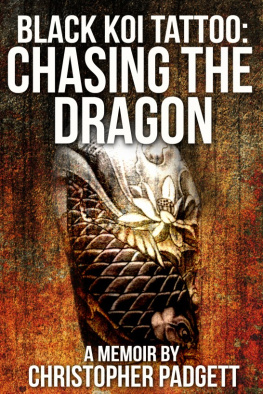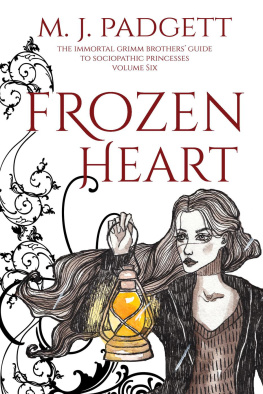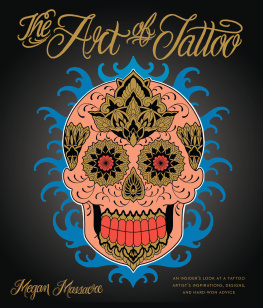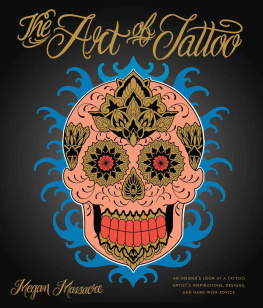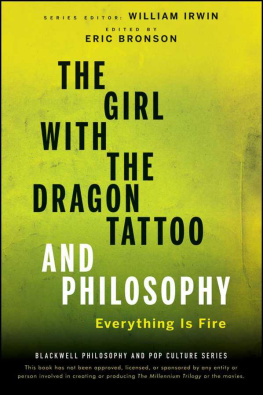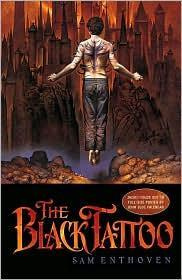Black Koi Tattoo:
Chasing the Dragon
A Memoir
By
Christopher Padgett
Copyright 2015 Christopher Padgett
Smashwords Edition
Names of people in this book have been omitted toensure their privacy.
This eBook is licensed for your personal enjoymentonly.
All rights reserved.
Cover design by Tatiana Vila
Published 2 January 2015
as a gift to myself for my 40thbirthday
Table ofContents
Addiction will take you farther than you want togo, keep you longer
than you want to stay, and cost you more than youwant to pay.
The title, Black Koi Tattoo: Chasing theDragon, refers to a tattoo I got in the summer of 2014. It's ablack koi swimming down my right arm from the shoulder. Intraditional Japanese folklore, the koi swims up a waterfall whereit turns into a dragon. Tradition says that when the koi tattooswims down, it represents a struggle or life obstacle that has beenovercome. In my case, it is my successful rehabilitation fromaddiction to sobriety. The second meaning of the title, Chasingthe Dragon, comes from my morbid compulsory pursuit of theperfect high. Unlike the koi, the transformation to a dragon neveroccurred. Although the demon in the bottle did create a monster, itis one far more dangerous than the mythical dragon.
This book is in no way an attempt toglamourize alcohol abuse or to justify the things I have done. Itwas a struggle that came close to costing me my life. Just as thekoi fish struggles to swim upstream, I had an uphill battle againstan enemy that had me completely surrounded. Not only did thedrinking attempt to kill me, trying to become, and staying soberran me through another gauntlet. Even though the deadly struggle isover, the daily challenges will never completely end. My koi swimsdown my arm, breaking free of the surrounding water, as I havebroken free of the poisonous waters of my addiction.
I was a slave to the demon in the bottle.Every aspect of my life revolved around my next drink. Hours, days,and maybe even months of my life have been completely lost inabsolute blackouts. Every part of the mind functions during thoseperiods except for the memory. I cannot begin to tell you how manytimes I woke up and had no idea how I had gotten home from thenight before. Much of what I know of my blacked out periods cametogether from clues i.e. damage to my car that wasn't there theday before; no money in my wallet; the foul stench of bar clothesmixed with the unsavoury scent of a freshly soiled bed; or bruises,cuts, or other damage to my body. Imagine coming out of a blackoutto realize someone stabbed you in the neck. With no memory of it,there was no way to pin blame on anyone. Other times, my wife wouldtell me how she found me sitting up naked in my bed, crying like ababy, completely out of my mind. These were near the end of mydrinking career, when I had lost any semblance of sanity relatingto my ability to drink like a normal person.
Seven weeks after I checked into a Germanhospital for detoxification, I entered an addiction facility in theUnited States. During those seven weeks, I attempted sobriety theway a blind man attempts to see. The first couple weeks went bywith white-knuckled success. Then I had my first slip. A few dayslater, I had my first post-detox binge. I was losing the battle.The dragon's fiery breath was again in my face. I would do my bestto stay clean during the week just to indulge on the weekends. Thisawful cycle continued until someone stabbed me in the neck. I foundtwo German police officers in my dining room asking me questions Icould not answer. That was three days before I checked myself intothe Eisenhower Residential Treatment Facility in Augusta,Georgia.
The book includes two short stories. Thesestories round out my experiences of being an addict. MorningCoffee tells the story of needing to go to a treatment facility.Return from Rehab discusses the struggles of emerging from thepink cloud. It is a disjointed narrative that reflects the stillbroken psyche I suffered at that time. This is followed by TheArmy Years, Life as a Civilian, and Back in the Army. It showsthe progression of my drinking from being controllable to the pointwhere rehab was necessary. Detox Journal and Rehab Writingscomprise the middle parts of the book. The Afterward discusses mypost-rehabilitated life.
I didn't just wake up a drunkard. The signswere there for many years before I finally realized the breadth ofmy problem. Aside from the typical adolescent stupidity, my alcoholuse as a teen was pretty normal. It started to change after Ijoined the Army, and went to Advanced Individual Training at FortGordon, Georgia in 1997. After the first couple weeks of being onlock-down, the drill sergeants allowed us to go to the on-postsports bar on the weekends. Sharing in the unofficial Army pasttime of throwing back a few amongst fellow soldiers became thenorm.
From Fort Gordon, I went straight to Camp RedCloud in Uijeongbu, South Korea. It was a twelve monthunaccompanied tour, which meant a full year away from my wife ofseven months, and my five month old daughter. I was twenty-two atthe time, had never lived on my own, and was now in the real Army.Korea was a disorienting experience. Life was fast, alcohol wascheap, potent, and plentiful, not to mention the language andcultural barriers. When I first got there, I didnt enjoy gettingdrunk. I still believed that we should be respectful to our hostnation. The dangers of getting butt-raped in a dark alley, or dyingin our sleep from over-indulgence were real possibilities. Thoseideas went away over the next few months. By the time I boarded aplane for Dallas to see my wife and daughter for a couple weeks in1998, I was already a seasoned drunk.
My first encounter with the demon in thegreen bottle, soju, was almost my last. I drank seven glasses ofsoju punch at a bar. Everything was fine until I stood up. I satback down and immediately wondered how I was going to walk the twomiles back to my barracks. By the time I walked the ten feet to theexit, I was already wobbling, the world swaying in a technicolourswirl. I only remember parts of the walk back, including trying tofight a tree, and losing the fight. The rest of the walk is lostforever. My next memory picks up in my bed. Hot and cold flashesalternated. Nausea, worse than the flu, gripped me. One thoughtstands out in my memory, Will I be angry with myself in themorning if I throw up in my bed? Yes, you will. Get up. I made itto my bathroom. Torrential vomiting coupled with diarrhea ripped meapart. I was able to time it so I could flush and change positionsbetween the rounds of poop and hurl. This happened on a Tuesdaynight. The following day was a work day, one of the worst I hadexperienced up to then.
My twenty-third birthday wasn't any better. Iwent to the on-post club with a few of the soldiers. A sergeant waswith us. More experienced than the rest of us, he carried his owntoxic brand of hooch with him. He had mixed four different liquorstogether in a Gatorade bottle. While he was away from the table, Idrank his hooch. Drunk beyond measure, I bumbled about in ahallucinogenic fog. Being early January, it was bitterly coldoutside. I remember sitting down on the steps of the club. The icyair cooled the fever that was my tell-tale sign of being ill. Aftera few minutes, I went back inside. Not feeling well, I made my wayinto the restroom. Once again, my body tore itself asunder withvomiting and diarrhea. This time the filth released itselfsimultaneously. I was in the stall next to the wall. Soldierscrowded the restroom, most of whom were at the sink and mirror. Thesound and smell coming out of that stall must have been horrific.The vomit splattered against the wall, puddled, and flowed out ofthe stall. No one bothered to ask if I was alright. No one cared, afact that surprised me at the time. Now, about sixteen years later,I know thats how it is. When faced with taking responsibility forsomeone elses mistake, few soldiers will do it. They all turned ablind eye to my situation. When I finished, I stumbled out of thestall to the sink. Those standing in the restroom dismissed me asif I wasn't the one they heard.

